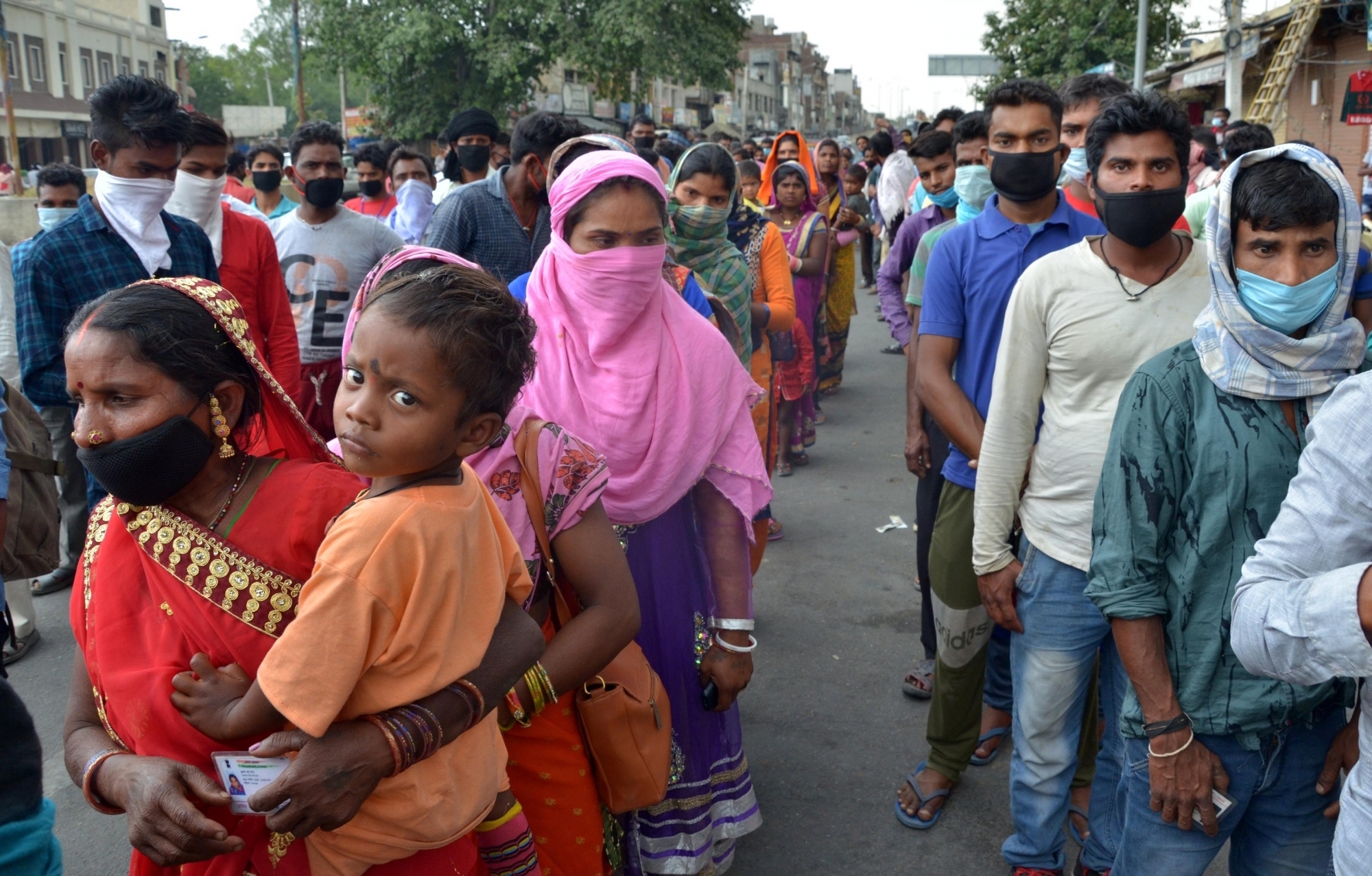The Covid pandemic and the resulting job loss affected the lives of migrants in a big way. Thousands had to return back, walking along highways.
Patna: Ajay Mohan Thakur, 37, is waiting at the Patna railway station to board a train to a city he swore he would never go back to. Thakur was forced to leave Mumbai in June last year because he lost his job as a superintendent in a private handloom factory due to the pandemic. “I had vacated my room, paid all dues, and set out on the 1000 km journey on a migrant special train—annoyed and demoralized.’’ he said.
But months after being jobless, he had to again go to Mumbai in search of a job. Many migrant labourers from various districts in Bihar had the same stories—they are now returning back or have returned to big cities. Ajay Mohan Thakur was from Sitamarhi, a district on the India-Nepal border, which houses some 3.4 million people. According to the Patna-based AN Sinha Institute of Social Studies, 80% population of the district is dependent on agriculture. There is not much industry in this district, apart from a sugarcane factory and a few small scale industries like fabric and ply factories. Many people from the district migrate to big cities like Mumbai and Delhi in search of jobs.
“When you don’t have enough money for your family to survive for a month and have hungry children, one has to surrender,” Ajay said. “I promised to myself, I would never return
The Covid pandemic and the resulting job loss affected the lives of migrants in a big way. Thousands had to return back, walking along highways because buses and trains services were often shut to minimise the impact of the virus. Now most of the migrant labourers are going back as in villages there are hardly any opportunities.
Bihar accounted for 1.5 million of the 10.5 million migrant workers who returned to their home states, the central government told the Lok Sabha this year. Among those who have returned is Shamsuddin, (23), resident of Mehsaul village in Sitamarhi district. “I used to work as a plumber in Faridabad for a living,” He survived for five months on savings and then had to go back. He now works as a bus conductor, a job for which he makes Rs 16,000 a month as opposed to the Rs 25,000 he made before the pandemic.
Satish Kumar, 31, was relieved to get work in June under Mahatma Gandhi National Rural Employment Guarantee Act (MGNREGA), a central government scheme that provides a hundred days of work a year after returning from Bengaluru. He, however, has not yet received his wages under the scheme for the last few months. “It has been four months, I was hoping MGNREGA would sustain my family, it did help in the starting period, but now, we are struggling and planning to return to Karnataka,” said Kumar.
“The issue of returned migrants was the most important issue in the Bihar Assembly elections last year which saw ruling Nitish Kumar’s Janta Dal United (JDU) tally going down to 43 seats in the election,” said Ramsharan Aggarwal, a professor of Political Science at a local college. “The state government led by the Janata Dal United has completely ignored industrial development in the last 15 years; there are no industries, therefore no work,” he added.
Primal Kumar, the district Information officer, said: “We have provided employment opportunities to more than 10,000 people this year itself under the Garib Kalyan Rojgar Abhiyan in 25 work areas or projects related to meet the needs of the villages like plantations, rural roads, Jal Jeevan mission and other infrastructure projects.” But these schemes have not been able to help the migrants in a big way, forcing them to return to big cities in search of jobs and livelihood.

